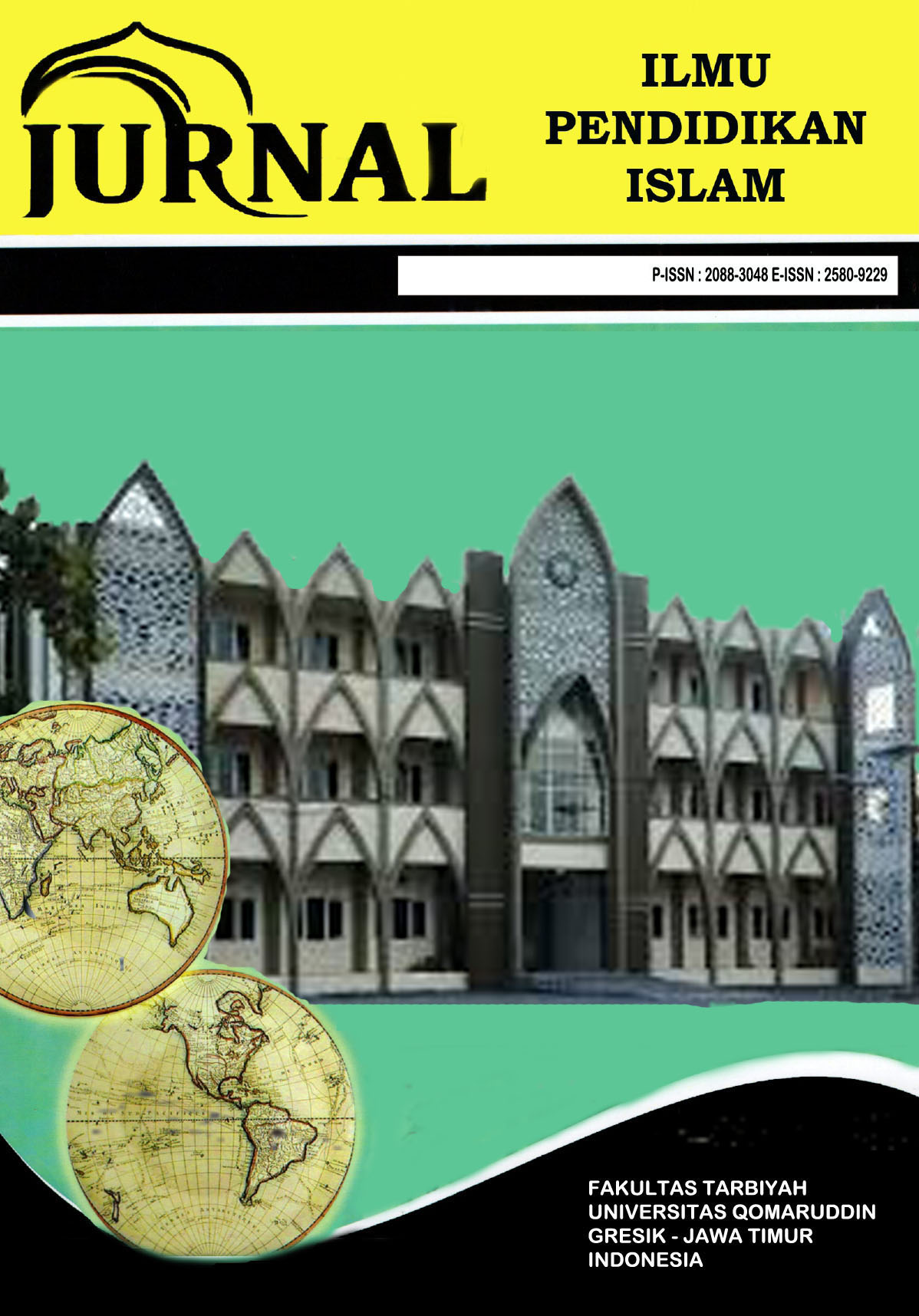Analisis Metode Bimbingan Tugas Kelompok Mentoring untuk Menumbuhkan Sikap Kerja Sama pada Siswa Kelas 8 SMP IT Rabbani
Abstrak
Dewasa ini peningkatan nilai siswa secara akademik semakin digalakan oleh pemerintah, tetapi indeks kenakalan remaja semaik memngkat. Kenakalan remaja utamaya tingkat sekilah menengah pertama menjadi ukti hilangnya nilai nilai positif yang berusaha ditanamkan lewat pendidikan. Karakter dan sikap positif siswa seyodyanya selalu ditanamkan di sekolah. Menanamkan sikap positif siswa utamanya
kerjaama berusaha dilakukan oleh SMP IT Rabbani dengan mengunakan metode bimbingan tugas kelompok mentoring. Penelitian ini dilakukan untuk menganalisa mengunakan metode bimbingan tugas kelompok mentoring yang dilakukan di SMP IT Rabbani. Jenis penelitian yang digunakan adalah kualitatif dengan desain penelitian studi kasus. Pengumpulan data dilakukan melalui observasi langsung selama sesi-sesi
mentoring, wawancara mendalam dengan guru yang terlibat, dan pemantauan dokumentasi seperti catatan kegiatan dan materi yang disampaikan. Data yangterkumpul akan dianalisis menggunakan pendekatan analisis kualitatif, dengan langkah- langkah reduksi data, display data, dan verifikasi data. Validitas dan reliabilitas data akan diperkuat melalui langkah-langkah triangulasi, diskusi tim peneliti, dan pencatatan rinci langkah-langkah analisis. Bimbingan tugas kelompok mentoring di SMP IT Rabbani di topang oleh tiga faktor utama yaitu : pertama pengunaan pendekatan pembelajaran secara islami dengan menerapakan pembelajaran berbasis kekeluargaan, dan pengunaan metode Tilawah Al Quran. Kedua pemilihan metode kultum sebaya. Ketiga yaitu pemilihan guru mentor yang harus menguasai metode bimbingan kelompok. Kendala yang muncul adalah tingkat percaya diri siswa rendah serta menejemen waktu oleh guru. Ada 8 kreteria yang terlihat sebagai tanda kerjasama yang terbangun antar siswa di SMP IT Rabbani
Referensi
Agboola, A., & Tsai, K. C. (2012). Bring character education into classroom. European Journal of
Educational Research, 1(2), 163–170.
Amar, M. F. (2024). Peran Kemampuan Komunikasi Interpersonal Pendidik Dalam
Menumbuhkan Self-Efficacy. Aafiyah: Jurnal Multidisiplin Ilmu, 2(01), 1–13.
Aqobah, Q. J., Ali, M., Decheline, G., & Raharja, A. T. (2020). Penanaman Perilaku Kerjasama
Anak Usia Dini Melalui Permainan Tradisonal. Jurnal Eksistensi Pendidikan Luar Sekolah (EPlus),
(2).
https://pustaka.untirta.ac.id/index.php/E-Plus/article/view/9253
Azima, A. Z., Damanik, D. Y., & Nabilah, S. (2024). Efektivitas Kegiatan Program Ekstrakurikuler
Keagamaan Tilawah Al-Qur’an dalam Meningkatkan Kemampuan Baca Tulis Al -Qur’an
Santri di Pondok Pesantren Ar-Raudhatul Hasanah. Mimbar Kampus: Jurnal Pendidikan Dan
Agama Islam, 23(2), 807–817.
Cikka, H. (2020). Peranan kompetensi guru pendidikan agama islam (PAI) dalam meningkatkan
interaksi pembelajaran di sekolah. Guru Tua: Jurnal Pendidikan Dan Pembelajaran, 3(1), 43–
Dewi, R. P. (2019). Studi Kasus-Metode Penelitian Kualitatif.
https://osf.io/preprints/inarxiv/f8vwb/download
Fahreza, S. A. F. S. A. (2024). Pelaksanaan pendidikan karakter di lingkungan sekolah sebagai upaya
membentuk pondasi moral generasi penerus bangsa. Metta: Jurnal Ilmu Multidisiplin, 4(1).
http://www.jayapanguspress.com/index.php/metta/article/download/51/52
Fajar, M., Mattalatta, M., & Natsir, M. (2020). Pengaruh Manajemen Waktu, Motivasi Mengajar,
dan Kepemimpinan Kepala Sekolah terhadap Kompetensi Professional Guru di Yayasan
Pendidikan Tamalatea Kota Makassar. YUME: Journal of Management, 3(1).
https://www.journal.stieamkop.ac.id/index.php/yume/article/download/631/355
Gafri Mamonto, A. (2023). KOMUNIKASI INTERPERSONAL GURU DAN SISWA DALAM
INTERAKSI PEMBELAJARAN DI MTs NEGERI 1 BOLAANG MONGONDOW
TIMUR [PhD Thesis, IAIN MANADO]. http://repository.iain-manado.ac.id/1607/
##submission.copyrightStatement##
##submission.license.cc.by4.footer##




